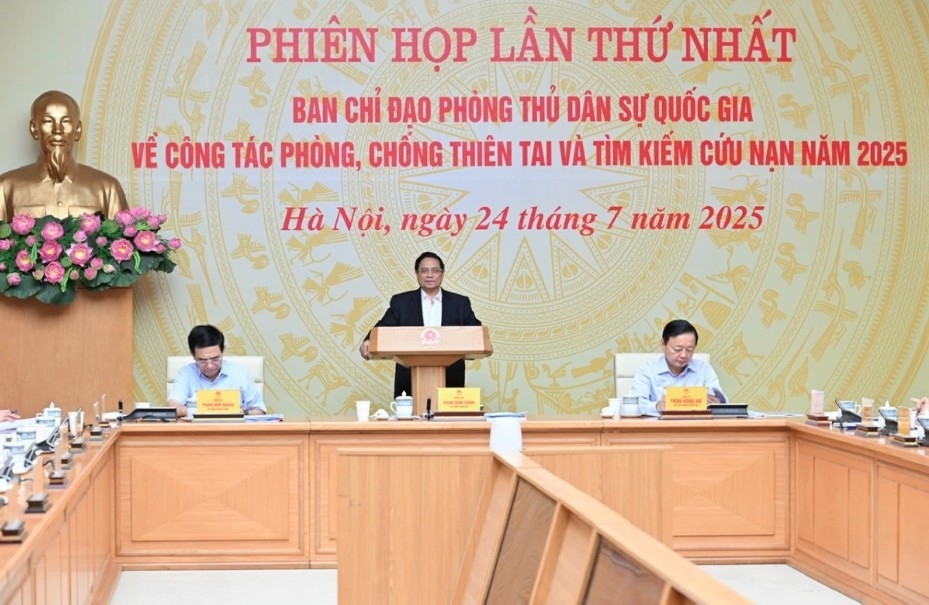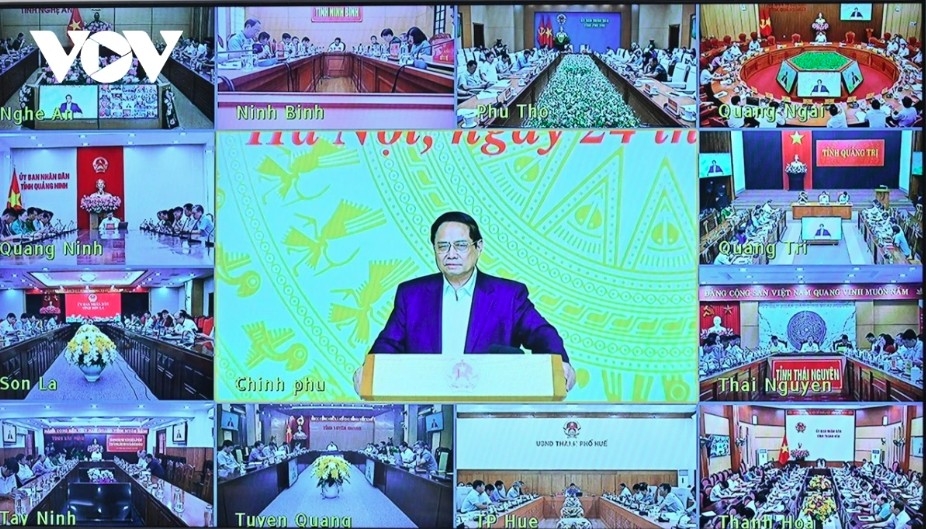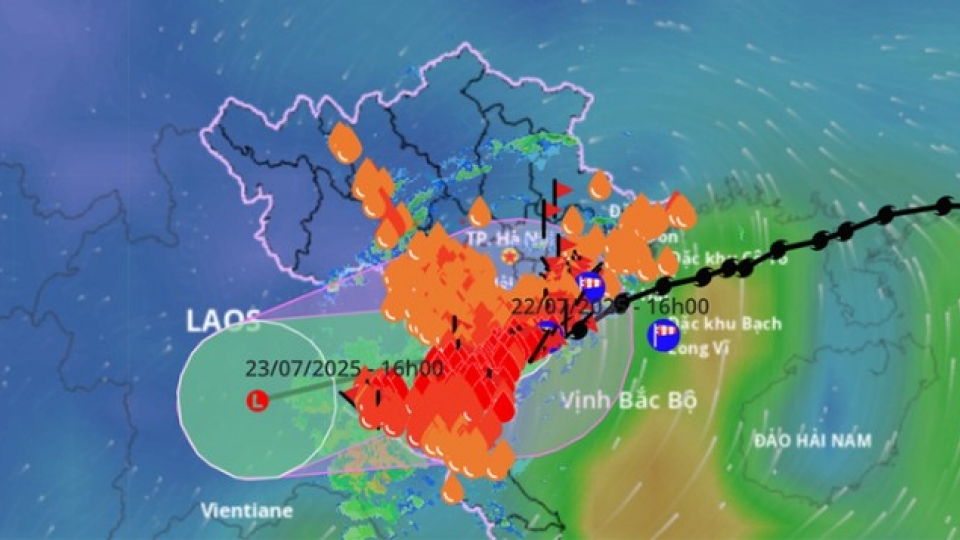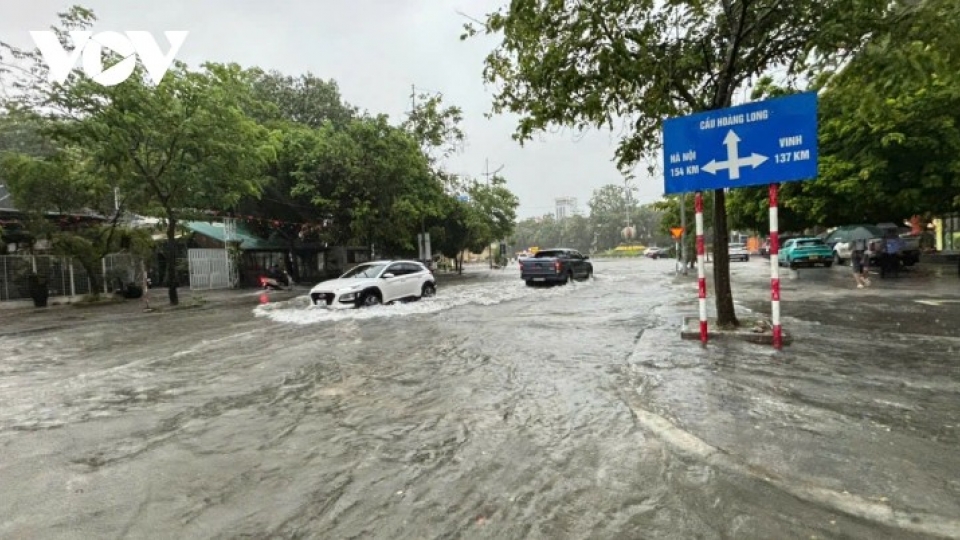PM orders rapid access to disaster-hit areas amid rising storm risks
VOV.VN - Prime Minister Pham Minh Chinh has called for urgent access to areas isolated by storms and natural disasters, stressing the need for rapid response amid increasingly extreme weather patterns.

On July 24, Prime Minister Pham Minh Chinh, who also serves as Head of the National Civil Defense Steering Committee for Natural Disaster Prevention and Search and Rescue in 2025, chaired the committee’s first meeting at the Government Office. The session was held via videoconference with 34 centrally-run provinces and cities and 3,321 communes, wards, and special zones nationwide.
Addressing the meeting, the Vietnamese Government leader stressed the urgency of closely monitoring rapidly changing weather patterns and taking swift response measures. He instructed that isolated areas must be reached quickly by all means necessary to deliver food, water, and essential supplies, and to ensure environmental sanitation.
On behalf of Party General Secretary To Lam and other senior Party and State leaders, PM Chinh extended his deepest condolences to the families of victims affected by recent natural disasters, particularly those who lost loved ones in the Vinh Xanh cruise boat accident in Ha Long Bay and during Typhoon Wipha, known as Storm No. 3 in Vietnam this year.
He also expressed sympathy for the severe losses suffered by residents of mountainous communes in northern Nghe An province, which have been hit by historic flooding caused by storm-related rainfall.
On behalf of the Government, Chinh praised the Ministry of Agriculture and Environment for their roles in disaster response. He noted that under new regulations, civil defense encompasses measures to prevent and address the consequences of war, natural disasters, incidents, and epidemics. Under the new mandate, the ministry is tasked with disaster preparedness and recovery efforts in accordance with the law.
“Natural disaster prevention is a critical component of national defense,” PM Chinh said. “Vietnam’s elongated geography leaves it exposed to a wide range of disasters such as typhoons, flash floods, landslides, droughts, saline intrusion, thereby requiring the country to stay alert and responsive at all times.

The Government leader emphasized that climate change is causing increasingly erratic, severe, and unpredictable weather patterns. He cited major examples including last year’s Storm No. 3 (Yagi), one of the strongest storms in recent memory as well as freak thunderstorms in northern Quang Ninh province and Hanoi days earlier. Regarding this year’s Typhoon Wipha, despite the proactive efforts of ministries, sectors, and localities in disaster preparedness, early warning, and public awareness campaigns, the storm still made landfall in northern Nghe An province with torrential rainfall.
PM Chinh called for clear division of responsibilities in disaster response. He directed the Ministry of National Defense and the Ministry of Agriculture and Environment to strengthen coordination and to assign responsibilities for members of the Steering Committee based on the “six clears” principle: clear personnel, clear tasks, clear responsibilities, clear timelines, clear results, and clear authority, while ensuring accountability and accurate assessments. He also urged local administrations at both levels to fulfill their roles in disaster response and search and rescue efforts.
He underlined the need for timely communication and reporting by all levels and sectors to the Steering Committee so that leadership can provide more responsive, informed, and precise direction.
PM Chinh called on media agencies to dedicate sufficient airtime and coverage to highlight the Party and State’s care for people’s safety and livelihoods, as well as the determination of the political system and the public in coping with natural disasters and overcoming storm and flood aftermaths.




